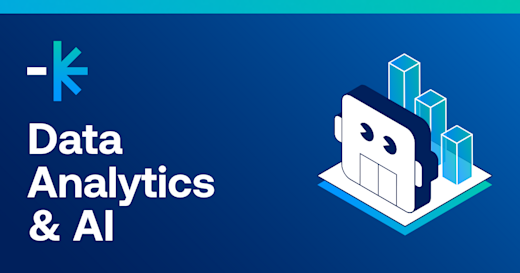You've completed ITIL 4 Foundation – now it's time to take things to the next level. ITIL® Manager Certifications validate your experience with overseeing IT managed services.
And when it comes to experiences, the last couple of years are rich with ups, downs and new problems that need to be solved. IT teams that were very good at supporting an on-site workforce found themselves having to reconfigure processes for a remote and later hybrid staff. We know this because Lumify Work’s own ICT Service Management team have had to support our workforce across different cities in Australia, New Zealand, and the Philippines.
ITSM Challenges Needing Managerial Expertise
A survey by Gatepoint Research and enterprise service management (ESM) vendor Espressive found that in 2022, IT Service Management (ITSM) tools aren't there yet when it comes to improving user productivity.
The report shared that 74% of onsite employees and 80% of remote employees preferred the phone for getting help from IT. 57% of employees also say resolution times are slow. And 22% of the ITSM organisations surveyed do not provide support outside of business hours -- a bane for staff working in different time zones and locations.
On the top problems of service managers, ManageEngine notes that VPN or connectivity issues ranked first place. The second was managing assets - IT departments had to get creative with facilities and logistics teams to deliver devices and accessories to staff. Bring your own device (BYOD) policies had to be adjusted too to address security concerns.
Lumify Work ITIL Technical Instructor Colin Hooper adds that:
“Leaders also need support with recruitment and career development, particularly in understanding and advancing the skill sets required of the different specialisations within IT service teams beyond general, foundational knowledge."
IT Service Management Roles
Understanding the different roles within IT teams can help you identify your ITIL certification path and how you can upskill to stand out, specialise and adapt to the challenges of remote and hybrid work arrangements.
IT Support
They provide general technical assistance for installing new tools or troubleshooting software and hardware issues. Some help identify and fix customer problems related to the company's product. Support teams are often structured in tiers based on their level of technical expertise, training and experience.
IT Service Manager
They are responsible for planning and managing the service delivery improvement plan, managing risks and issues. Supporting any changes through effective communication and coordination at all levels of the organisation. These senior IT professionals are sometimes deputised as the Head of Service Delivery when needed. And they branch out into intermediate specialisations.
ITIL 4 Certification Scheme
PeopleCert offers level-based certifications and designations to support roles within ITSM teams. ITIL certifications are designed to assess an individual’s competency with the entire ITIL framework more broadly, rather than specific IT functions. Under ITIL 4 there are four certifications/designations, with an additional designation to follow in 2023:
Foundation
Managing Professional (MP)
Strategic Leader (SL)
Master
ITIL 4 Managing Professional designation
This designation is designed for IT practitioners working in technology and digital teams across businesses. It gives them practical and technical knowledge on running successful IT-enabled services, teams and workflows. It comprises four courses:
ITIL 4 Drive Stakeholder Value (DSV)
Are you an IT professional who fosters relationships with stakeholders to co-create value? Is service design, relationship management and customer/user experience part of your accountabilities within Service Management? Drive Stakeholder Value benefits anyone who manages customer journeys, experiences, or expectations.
ITIL 4 Create, Deliver and Support (CDS)
Do you work in operations, supervisory and mid-management roles in Service Management? Are you an ITSM manager or an aspiring ITSM manager? This is for IT practitioners and leaders who design digital products and services and who deliver and support them to agreed levels. This includes development, deployment, and monitoring activities.
ITIL 4 High-Velocity IT (HVIT)
This is for IT managers and practitioners who work in digital or highly automated environments, or who deliver digital products and services. This includes anyone involved in digital transformation and in Lean, Agile, or DevOps ways of working.
ITIL 4 Direct, Plan and Improve (DPI)
This is for anyone who needs to align their team’s objectives with the organisational strategy. We recommend it for those in Supervisory and Managerial Roles involved in aligning team objectives with strategy, planning at any level and continual improvement.
Get to the next level with an ITIL Manager certification
Beyond providing technology solutions, IT professionals can add more business value when they learn about and apply intermediate ITIL concepts within their organisations.
Lumify Work is a leading provider of corporate IT training with campuses across Australia, New Zealand and the Philippines. We offer a wide range of ITIL certifications across varying needs and skill levels.
Fred Caranese, Lumify Work's ITIL Product Manager, shares his thoughts on the impact of intermediate training and certification pathways:
"Having spent many years in the IT and Business space, one of the most fundamental issues facing people is having a sound understanding and grasp of key concepts and challenges faced. ITIL is the framework that provides you with the groundwork and further development in IT regardless of your career path in a modern workplace. ITIL supports everyone from the operational staff right through to leaders in Business.
"Talk to us here at Lumify Work and let our team help you find the best path in your ITIL journey."
You can deep-dive into ITIL as the world’s leading ITSM framework by accessing our eBook. You can also reach out to our team to enquire about a course in ITIL and ITSM.









